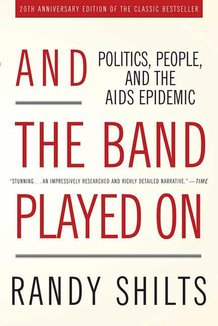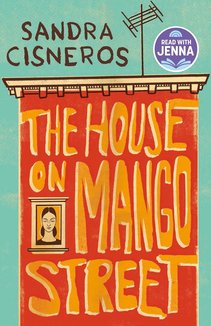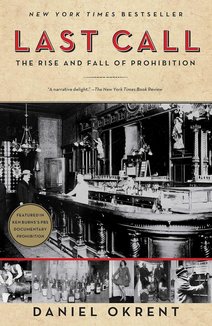Recommended Books

And the Band Played On: Politics, People, and the AIDS Epidemic, 20th-Anniversary Edition
Author:
Randy Shilts
ISBN 13:
978-0312374631
Upon its first publication more than twenty years ago, And the Band Played on was quickly recognized as a masterpiece of investigative reporting. An international bestseller, a nominee for the National Book Critics Circle Award, and made into a critically acclaimed movie, Shilts' expose revealed why AIDS was allowed to spread unchecked during the early 80's while the most trusted institutions ignored or denied the threat. One of the few true modern classics, it changed and framed how AIDS was discussed in the following years. Now republished in a special 20th Anniversary edition, And the Band Played On remains one of the essential books of our time.

The House on Mango Street
Author:
Sandra Cisneros
ISBN 13:
978-0679734772
A TODAY SHOW #ReadWithJenna BOOK CLUB PICK NATIONAL BESTSELLER • A coming-of-age classic about a young girl growing up in Chicago • Acclaimed by critics, beloved by readers of all ages, taught in schools and universities alike, and translated around the world—from the winner of the 2019 PEN/Nabokov Award for Achievement in International Literature. “Cisneros draws on her rich [Latino] heritage...and seduces with precise, spare prose, creat[ing] unforgettable characters we want to lift off the page. She is not only a gifted writer, but an absolutely essential one.” — The New York Times Book Review The House on Mango Street is one of the most cherished novels of the last fifty years. Readers from all walks of life have fallen for the voice of Esperanza Cordero, growing up in Chicago and inventing for herself who and what she will become. “In English my name means hope,” she says. “In Spanish it means too many letters. It means sadness, it means waiting." Told in a series of vignettes—sometimes heartbreaking, sometimes joyous—Cisneros’s masterpiece is a classic story of childhood and self-discovery and one of the greatest neighborhood novels of all time. Like Sinclair Lewis’s Main Street or Toni Morrison’s Sula, it makes a world through people and their voices, and it does so in language that is poetic and direct. This gorgeous coming-of-age novel is a celebration of the power of telling one’s story and of being proud of where you're from.

Last Call: The Rise and Fall of Prohibition
Author:
Daniel Okrent
ISBN 13:
978-0743277044
A brilliant, authoritative, and fascinating history of America’s most puzzling era, the years 1920 to 1933, when the US Constitution was amended to restrict one of America’s favorite pastimes: drinking alcoholic beverages. From its start, America has been awash in drink. The sailing vessel that brought John Winthrop to the shores of the New World in 1630 carried more beer than water. By the 1820s, liquor flowed so plentifully it was cheaper than tea. That Americans would ever agree to relinquish their booze was as improbable as it was astonishing. Yet we did, and Last Call is Daniel Okrent’s dazzling explanation of why we did it, what life under Prohibition was like, and how such an unprecedented degree of government interference in the private lives of Americans changed the country forever. Writing with both wit and historical acuity, Okrent reveals how Prohibition marked a confluence of diverse forces: the growing political power of the women’s suffrage movement, which allied itself with the antiliquor campaign; the fear of small-town, native-stock Protestants that they were losing control of their country to the immigrants of the large cities; the anti-German sentiment stoked by World War I; and a variety of other unlikely factors, ranging from the rise of the automobile to the advent of the income tax. Through it all, Americans kept drinking, going to remarkably creative lengths to smuggle, sell, conceal, and convivially (and sometimes fatally) imbibe their favorite intoxicants. Last Call is peopled with vivid characters of an astonishing variety: Susan B. Anthony and Billy Sunday, William Jennings Bryan and bootlegger Sam Bronfman, Pierre S. du Pont and H. L. Mencken, Meyer Lansky and the incredible—if long-forgotten—federal official Mabel Walker Willebrandt, who throughout the twenties was the most powerful woman in the country. (Perhaps most surprising of all is Okrent’s account of Joseph P. Kennedy’s legendary, and long-misunderstood, role in the liquor business.) It’s a book rich with stories from nearly all parts of the country. Okrent’s narrative runs through smoky Manhattan speakeasies, where relations between the sexes were changed forever; California vineyards busily producing “sacramental” wine; New England fishing communities that gave up fishing for the more lucrative rum-running business; and in Washington, the halls of Congress itself, where politicians who had voted for Prohibition drank openly and without apology. Last Call is capacious, meticulous, and thrillingly told. It stands as the most complete history of Prohibition ever written and confirms Daniel Okrent’s rank as a major American writer.